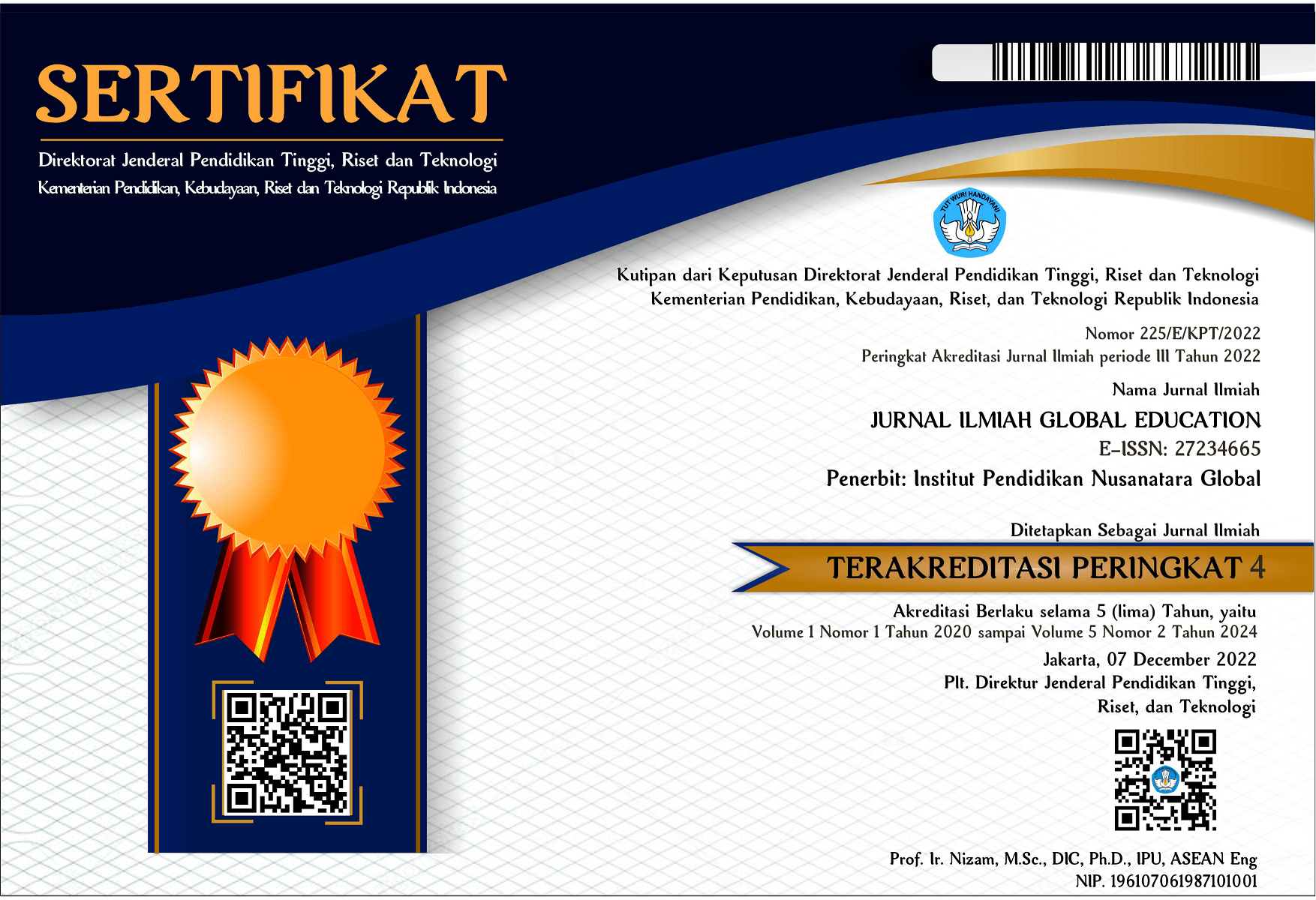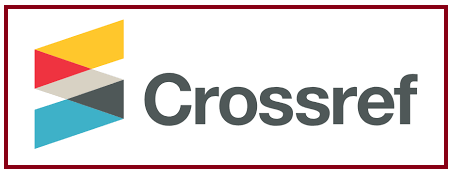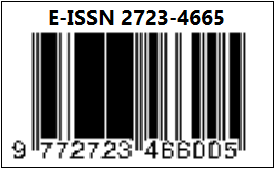Stereotip Masyarakat Asli Kao Terhadap Pendatang Trans Jawa ( Studi Komunikasi Antar Budaya di Desa Toliwang Kecamatan Kao Barat Kabupaten Halmahera Utara )
DOI:
https://doi.org/10.55681/jige.v5i2.2667Keywords:
Culture communication, Stereotype, Social identityAbstract
This research is based on the stereotype of Toliwang people, west Kao district, to the Javanese Immigrants. But lack of information or knowledge, so the word "stereotype" become negative meaning. This study aims at describing how the Kao native people's stereotype against Javanese immigrants in Toliwang, west Kao district. The used method in this study is qualitative descriptive that aims to interpret and solve problems researched, by describing the reserch objects based on the existing evidences. The research result shown that, the Kao people stereotype is emerged caused by some factors, namely: behaviour, miscommunication, and envy. These factors exist caused by the people's daily and friendship from Javanese immigrants against local people. By the obtained data from informan, there are some stereotypes that emerge on the Javanese immigrants as follow: Javanese are dirty, Javanese are invaders, and Javanese are introvert. These stereotypes are shaped cannot be separated from behaviour, background, interaction, and knowledge that owned by the Kao people themselves. These things, then, become a view of informan is same or different. Generally, by all informans have same in the shape of interaction experience with Javanese immigrants, and such the distintion between native people and comer. Based on the research result, it can draw conclusion that: stereotype is not only viewed as finished result, but also but the process of social identity categorization inside of an individual which get involved and considering consepts or themes become reference in shaping stereotype.
Downloads
References
A. Baron, R., & Byrne, D. (2004). Psikologi Sosial. Jakarta: Erlangga.
Agustian, Rizki & Syam, Hamdani M. (2018). Representasi Stereotip Masyarakat Indonesia Pada Video How To Act Indonesian. Jurnal Ilmiah Mahasiswa FISIP Unsyiah, Vol. 3, No.1. 16–24
Annisa Widyani, dkk. (2023). Analisis Stereotip Gender Dalam Pemilihan Karier: Studi Kasus Pada Siswa Sekolah Menengah Pertama. Pinisi Journal of Art, Humanity & Social Studies, 3 (1), 111–123
Feryna Nur Rosyidah, dkk. (2019). Gender dan Stereotipe: Konstruksi Realitas dalam Media Sosial Instagram. Social Work Jurnal, 9 (1), 10–19
Ilyas L, Haslinda BA. (2017). Stereotipe, Prasangka dan Dinamika Antaretnik. Jurnal Penelitian Pers dan Komunikasi Pembangunan, 20 (1), 17–32
Ismiati, (2018). Pengaruh Stereotype Gender Terhadap Konsep Diri Perempuan. Takammul: Jurnal Studi Gender dan Islam serta Perlindungan Anak, Vol.7 No.1. 33–45
Kollmayer, Marlene, dkk. (2016). Gender stereotypes in education: Development, consequences, and interventions. European Journal of Developmental Psychology,Vol. 15, No. 4, 361-377
Liliweri Alo, (2016). Konfigurasi Dasar Teori-Teori Komunikasi. Bandung: Nusa Media
Moleong, L, (2006). Metodologi Penelitian Kualitatif. Bandung: PT. Remaja Rosda Karya
Mulyana, D, (2005). Ilmu Komunikasi; Suatu Pengantar. Bandung: PT. Remaja Rosda Karya
Murdianto. (2018). Stereotipe , Prasangka Dan Resistensinya ( Studi Kasus Pada Etnis Madura Dan Tionghoa Di Indonesia ). Qalamuna, 10(2), 137–160.
Nagara, Dhian P, Hanum, Aliyah N., Listyaningrum, Indah. (2008). Prasagka Sosial dalam Komunikasi antar Etnik di Pontianak” dalam Jurnal Penelitian Universitas Tanjungpura, XI (3), 19–32
Rakhmat Jalaludin, (2005). Metode Penelitian Komunikasi. Bandung : Remaja Rosdakarya
Rosihan Akhmad, (2012). Tesis. Stereotipisasi Etnis Pribumi Atas Pendatang (Studi Deskriptif Stereotip pada Etnis Komering atas Etnis Jawa: Studi Kasus di SMA Negeri 1 Martapura, Oku Timur, Sumatera Selatan). Pascasarjana Ilmu Komunikasi Universitas Indonesia.
Susetyo Budi, (2010). Stereotip dan Realisasi Antar Kelompok. Yogyakarta. Graha Ilmu
Sutherland, C. A. M., dkk. (2014). Face Gender and Stereotypicality Influence Facial Trait Evaluation: Counter-Stereotypical Female Faces Are Negatively Evaluated. British Journal of Psychology, Vol. 106, 186—208.
Suwarjito, (2017). Kao Maluku Utara Indonesia. https://id.m.wikipedia.org.wiki/kao_halmahera_Utara diakses pada tanggal 06 Desember 2017, pukul 07.18.
Downloads
Published
How to Cite
Issue
Section
License
Copyright (c) 2024 Syaiful Bahry, Wahyuni Bailussy, Lisda A. Simabur, Suyatno Kahar, Suwarjito

This work is licensed under a Creative Commons Attribution-ShareAlike 4.0 International License.













